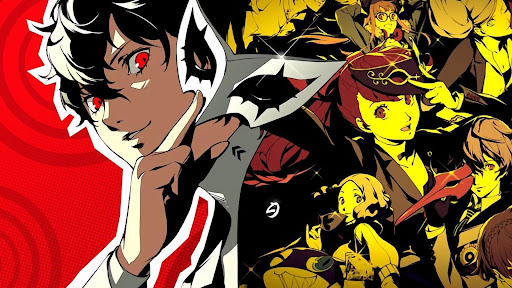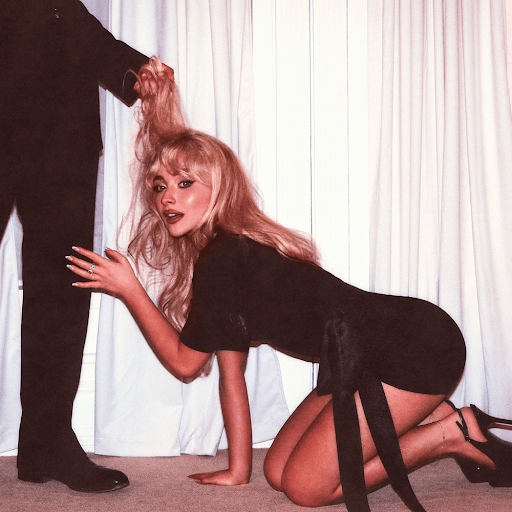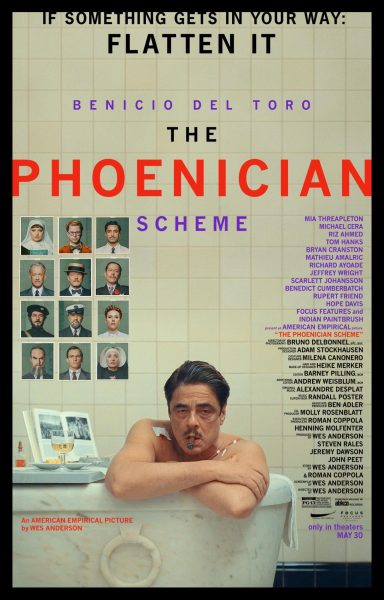‘Persona 5 Royal’ Part 1: Can You Feel That Jazz?

Photo courtesy of IGN
For over half a decade, I’ve heard near-constant praise for the legendary game, “Persona 5.” For almost the same amount of time though, I’ve been hesitant to dip my feet into it for one reason or another. I didn’t like turn-based combat in games, anime, or Japanese role-playing games (JRPGs). Despite this, I eventually decided to bite the bullet and finally play “Persona 5” over the summer after learning it was being released on all modern consoles.
Boy, was that the best decision I ever made because right from the start, I fell in love. The score, the style, and the intriguing writing all left a massive impression on me straight from the get-go. Upon rolling the credits of the original version of the game, I was just in complete awe after the 125 hours of complete ecstasy were finally over.
Later in October, I played the “Royal” edition which comes with significant gameplay and quality of life improvements along with a new dungeon and ending that builds upon the themes of the original experience.
Put simply, “Persona 5 Royal” is one of the best games ever made.
For a game of this length and magnitude, it’s exceedingly rare for it to not only justify the nearly 140-hour length but to also have it be consistently engaging throughout the entire experience. Beyond that, though, the game just hits it out of the park in nearly every conceivable aspect.
As implied by the title, this is the fifth mainline entry in the “Persona” series, which is a spinoff of the “Shin Megami Tensei” series. Lately, however, “Persona” has far outshined the series it spun off from due to a massive surge in popularity, especially after the release of the fifth game in 2016 and 2017 (depending on the region).
This surge in popularity is largely because the titles from “Persona 3” and onward place a much heavier emphasis on story and character work, making these stories feel more grounded and personal compared to its parent franchise.
If you’re worried about picking up “Persona 5” because it’s the fifth entry, fear not because each game in the series contains its own narrative and characters. You can pick up any game in the series without prior experience and understand what’s going on.
In short, “Persona 5” follows a group of high schoolers that were wronged by the corruption of society and resolve to fight it by venturing into the hearts of evil-doers to steal their hearts and make them confess to their crimes.
It sounds relatively simple, but as the game progresses, the stakes become higher and higher, and your group of vigilantes known as the “Phantom Thieves” become more and more desperate.
“Persona 5 Royal” towers above all others of its kind in the role-playing genre of games because it gracefully and seamlessly weaves every aspect of the game into its core narrative thesis, unlike any game I’ve seen except for the likes of “Dark Souls” and “Nier Automata.”
This review will be split into three separate articles. Part one will cover the soundtrack. Part two will cover the graphics, presentation, and gameplay. Part Three will cover the narrative.
Full spoilers ahead.
So can you feel that jazz?
I’m no music major nor an expert on music as a whole, but the score to this game, composed by Shoji Meguro, is out of this world. Similar to the game’s wider themes of rebellion and breaking free from society, the score follows suit by constantly mixing and bending genres fluidly and effortlessly. Many other games have switched to varying genres in their scores, but none do it quite like this.
For example, the game “Cyperpunk 2077” has a vast and expansive soundtrack that spans everything from hip hop, pop, EDM, and more, with the centerpiece being hard rock but all those songs stay within their respective genres whereas “Persona 5” frequently combines multiple genres in the same song.
The song, “Rivers in the Desert,” for example, effortlessly combines 80’s heavy metal and hip hop with some violins and heavy bass for good measure. It sounds like a mess on paper but it works flawlessly and helps each and every song stand out on its own. There are so many genres at play here with jazz, gospel, rock, funk, hip-hop, heavy metal, and classical music.
This excerpt from the song “GROOVY” in a spinoff game, “Persona 5 Dancing in Starlight,” perfectly sums up Meguro’s philosophy when composing this soundtrack:
So can you feel that Jazz?
Or the beautiful Ballet?
How about a Tango?
Or maybe some Rock’n’Roll?
We’ll bring it all to you
And guess what, you signed up for
Team A-W-E-S-O-M-E
Just say it, you don’t need lame, pretty tunes
Though the instrumental tracks are fantastic on their own, the vocal tracks are what really steal the show here. Vocalist, Lyn Inaizumi, is simply magical with some incredible vocal and emotional range in her singing. Each of the vocal tracks add so much to the experience for a variety of reasons whether it’s heightening emotional moments or delivering some of the game’s core themes.
Even more, many of these tracks build off one another both musically and lyrically to create a story just through the music and elevate the already existing narrative. This is done in three ways. The first is by having both instrumental and vocal versions of songs play throughout. The second is songs that are essentially sequels to each other. The third is making songs that are character specific that reveal their innermost thoughts and feelings.
For example, only the instrumental variant of “Beneath the Mask” plays prior to completing the first palace. After you officially don the mask and debut as a phantom thief, however, the vocal version plays which reveals the deeper thoughts behind the protagonist’s, whose codename is Joker, frame of mind. Now that he has dawned the mask of a Phantom Thief, he now sees himself differently but I’ll delve a little deeper later on.
Another example of this is how the song “Life Will Change” will play once you are on your way to take on the final boss of each palace. For most of the game, it will play the instrumental version where the vocals are replaced with an electric guitar. Once you reach a certain turning point in the story, however, they start playing the vocal version of the track which helps further emphasize that you are causing true change within society.
While on the topic of “Life Will Change,” this song is a direct follow-up to the intro song to the original version of the game, “Wake Up Get Up Get Out There.” This song serves as an introduction to this game’s core themes. It starts off with the narrator being unsure of themselves asking “Who am I?; Am I not unique?” but as the song progresses, it becomes a call to action for the game’s protagonists. It becomes more rousing and aggressive now using lyrics like:
Wake up, get up, get out there
Raise your voice against liars
Feed your anger like fire
Why does nobody want change?
Just imagine you’re out there
Swatting lies in the making
Can’t move fast without breaking
If you hold on life won’t change
As mentioned before, “Life Will Change” is a direct follow-up, and it plays much later in the game once you start to achieve the change you’ve been striving for. This song is much more aggressive and in your face than “Wake Up Get Up Get Out There,” as it trades the jazz and funk tones for a more rock-inspired song. This song is louder and has a lot more energy, which makes it feel like the stakes are now higher since it plays in some of the most exciting and triumphant moments in the game.
“Rivers in the Desert” is the thematic companion to “Life Will Change” because it essentially puts the ideas of “Life Will Change” into perspective. The song has some heavy metal-inspired instrumentals along with hints of hip-hop in the vocals, which further intensifies the stakes of what is happening on screen.
The purpose of this song is to highlight just how large of a feat you and the Phantom Thieves are undertaking as it equates your attempts at change to trying for the impossible or “creating rivers in the desert.” It puts into perspective how far your group has come from the opening lines of “Wake Up Get Up Get Out There.” You go from a teenager who is unsure of himself and questioning his identity to someone who is about to achieve the impossible.
A river in a dry land
The last ace in a lost hand
When the hope of new beginnings burned our feet
Now we need it:
A heartbeat for a tin man
An oasis in a singed land
Remind us what we’re here for
Creating new life
Creating rivers in the desert
Lastly, in the long line of sequel songs is “I Believe” (No, not the Roman Keating song), which serves as the ultimate culmination of all the game’s music. Just like the moment’s it’s played in, this song is grand, climactic, and inspiring by wrapping together everything that was set up from the beginning of the game.
Along with using the guitar riff from “Life Will Change” in portions of the song, there is also some faint DNA from rivers in the desert. It even follows up on the opening lyrics to “Life Will Change.” It’s a celebration of all things “Persona 5” both musically and thematically. It takes the excitement generated by “Life Will Change” and ramps it up to a whole other level.
Inaizumi’s vocals are at their best in this song with some incredible use of vibrato that makes the vocals feel just as grand as the instrumentals. This is by far the best song in the soundtrack, and every time I listen to it, I feel like I can punch a mountain or run up a skyscraper.
I believe we can fly up in the sky
One day we may just be able to touch down on a star
Off the road we have to go, the roadless path
We shall proceed until the end of our roles
There’s no turning back for us, cause we will never give up
On top of being a magnificent song in its own right, “I Believe” is also one of 5 songs that are tailored to a specific character or scene in the story, with the others being “Beneath the Mask,” “No More What Ifs,” “Throw Away Your Mask,” and “Our Light.”
In the finale to the “Royal” edition, “I Believe” and “Throw Away Your Mask” play at different points in the climax. Both songs represent the clashing ideologies of the Phantom Thieves and the antagonist, Dr. Maruki.
“I Believe” is a triumphant reaffirmation that the Phantom Thieves will carve their own futures and that they won’t let all their pain and hardship in Maruki’s reality devoid of pain and suffering.
It is often interpreted as being from Sumire Yoshizawa’s perspective because of how important she is to the delivery of the final act, but I’d argue it’s about the collective feelings of the Phantom Thieves. They have all lost someone important to them and endured grueling hardship, but they came out of those dark times as better people who use their pain for the betterment of civilization.
It’s our turn to get back, to grab the future which we fully believe
And it’s not given to us – it’s earned
Conversely, “Throw Away Your Mask” represents Dr. Maruki’s feelings and ideology. This song is much more somber than “I Believe.” Even in the instrumental version, “Keep Your Faith,” the guitar itself almost sounds like it’s sad or pleaing for the player to stop.
Despite being diametrically opposed, Maruki doesn’t want to fight the Phantom Thieves because he wants to improve their lives just as much as everyone else so the song reflects it by essentially being a desperate plea for them to stop.
This is radically different than most villain themes which typically sound very sinister and evil, but this song is much sadder and just highlights the near-tragic conflict unfolding on screen. This is an antagonist who cares deeply for the protagonists despite holding different beliefs. The main chorus of this song states:
Don’t sleep through dreams that can come true
No more tears shall drop from your cheeks anymore
You won’t need to strive for greatness
Believe in me that you don’t need to suffer from anything
“Beneath the Mask” and “No More What Ifs” both give a deep dive into the psyches of rivals, Joker and Goro Akechi. As I said before, “Beneath the Mask” is exactly what the title sounds like. It gives a glimpse of Joker’s thoughts and feelings behind this mask and facade he wears both figuratively and literally.
The song frequently references Edgar Allen Poe’s “The Mask of the Red Death,” placing Joker as the dark figure who brings about the downfall of the corrupt elite and exposes them to the truth. Furthermore, now that Joker has donned his mask and awakened his persona, the song describes how he feels he needs to hide behind the mask society has imposed upon him.
It describes how he feels lonely and unsure of who he really is. This is only highlighted more by the jazz-like instrumentals that give a more calm and contemplative sense of respite than the rest of the soundtrack. This song serves as a pivotal piece of development for Joker because he is a silent protagonist so there’s rarely any explicitly given character development for him like the rest of the cast.
As a sister song, “No More What Ifs” is also slow and has a jazz or blues feel. This song plays in a jazz bar that Akechi brings Joker to after the two form a good bond. This song essentially reflects Akechi’s inner conflict at a pivotal crossroads for him. The title itself reflects his wish that things had gone differently, which he states out loud multiple times in the game.
Unlike Joker, however, he knows exactly who he is and what he has done. He doesn’t regret all the evil actions he did in the past, as shown by the line, “I do not; Regret with my choices I’m rather proud,” he is sure of himself and isn’t constrained by the expectations of others. He’s not questioning who he is or what his purpose is, but rather he is unsure if letting people into his world as he wants.
Like Joker he wears a mask in front of others that makes him feel alone. Despite both wearing a “mask” to each other, Joker is the only tangible connection he has, and he’s afraid of when he will eventually have to kill Joker as shown in the lines:
How can I be so sure?
At a crossroads, I’m afraid too”
But I can’t let fear get the best of me
Someone once said burn my dread, babe
The last line in that verse is a reference to the song “Burn My Dread” in “Persona 3” which revolves around accepting the inevitability of death and living in spite of that eventuality. In the context of this song however, it almost acts as him trying to justify why he should kill Joker because it will release him from his fear. Despite this, he takes respite in the moments they have together now, even though Joker serves as a constant reminder of the inevitability of death.
My story will be starring me just like yours ooh ooh
Who knows when will it end
What matters most is how you bring joy to life so
Lastly, “Our Light” plays in the end credits after getting the “Royal” ending, and it serves as the emotional and thematic conclusion to the entire game. This song is extremely raw and bittersweet.
This is also one of the only songs that is sung in Japanese instead of English, along with “With the Stars and Us,” the ending song for the original version. “With the Stars and Us” is certainly a great song and capstone to the original experience, but “Our Light” just exists on a different plane of existence.
It’s an emotional gut punch, even without knowing what the lyrics mean. Inaizumi’s vocals are absolutely astounding here. She pours her entire heart and soul into this song, and it shows. Her performance is extremely visceral and emotional, which makes the song feel all the more powerful and heartbreaking.
“Our Light” is from the perspective of three characters, Maruki, Sumire, and Joker. There are six verses, with two dedicated to each character.
On the night I realized this dream was a dream,
I gazed at you, then closed my eyelids
If I woke up, your warmth, your hand on mine and your voice too
Would disappear together with my slumber
Even if we’d never meet again
Even if the time that has passed should transform into pain
That pain will guide me
Towards the stars of the sky that shine above me.
These lines are told from Maruki’s perspective and details the moment he realized his ambitions were nothing but a dream and how he must learn to live with the pain of loss. Many argue this is Maruki talking to Rumi, but the lyrics here indicate he’s actually talking about Joker.
Joker saved him from the prison of his own grief, and instead of making a reality where he ignores it, he will now face it head-on. He may never see Joker again, and he may never see his love, Rumi, again, but he now knows those experiences will lead him to a better tomorrow.
It’s also more fitting considering that Joker is his biggest inspiration for creating his “ideal reality” because he truly cares for him and his friends, but now realizes that he would have robbed them of the chance to grow and become better by moving beyond their pain.
You put a stop to that sweet, sweet fairytale kingdom
That is the distorted world where I met you
And, with it, to the mouth that preaches
That it’s fine to accept a false happiness
When the morning will come and I will begin to remember
You will be gone
But even if it will be painful
I will go on and walk along the path that I’ve chosen for myself
Towards the stars of the future I awoke into
These are from Sumire’s perspective. For the vast majority of the game, Sumire was living a fake life as her sister Kasumi because she couldn’t deal with the guilt of her death. In a way, Sumire was wearing a mask or facade the entire game, and Joker doesn’t truly meet her until that mask is removed by Maruki.
Joker showed her how to live as herself instead of living a blissful lie as her sister. She has now chosen a new path and the facade Maruki gave her has been removed. She has awoken into a new future where she carries the pain of the loss of her sister.
Since the sadness felt in waking
into a reality different from yesterday’s is important
I will live on.
Even if we would never meet again
Even if the time that has passed should transform into pain
That pain will go beyond the tears that flow
And will reach our light that will float eternally in the sky.
As the final words the audience hears from this game, it’s only fitting that they explore Joker’s feelings and pain. Out of everyone in the Phantom Thieves, Joker is the only one to lose something on the day they defeat Maruki.
With Akechi now gone and possibly the only person who could truly understand how he feels, Joker is left with sadness waking into a world where he is truly gone. Despite that pain, though, he will carry on and use that pain to guide him and use those tears to reach “our light that will float eternally in the sky.”
This song is beautiful because it leaves such a strong sense of bittersweet resolve. These characters have taken their futures into their own hands and now have to accept that the grief and pain they endure will help them become better people. “Our Light” is the perfect conclusion to this nearly 140-hour game that will lead even the most cold hearted people in shambles.
As shown by my extremely long analysis, the soundtrack to this game is astounding and is by far my favorite of any form of media video game or not. Never before have I seen a soundtrack so perfectly accompany the narrative it was made for.
It not only enhances the experience but is essential to the delivery of the game’s most important themes.
Shoji Meguro delivered a truly avant-garde album in every sense of the word.
The music is so varied but also familiar enough where it feels like it fits well within the same umbrella, which is truly impressive. This game sets the gold standard for what a soundtrack should be because it is masterfully woven into the narrative to help deliver both the highest highs and lowest lows emotionally.
My analysis just only scratches the surface of everything this soundtrack has to offer, and that is a sign of true care and artistry when so much attention to detail is paid to just the game’s music.
“If you hold on, life won’t change.”







